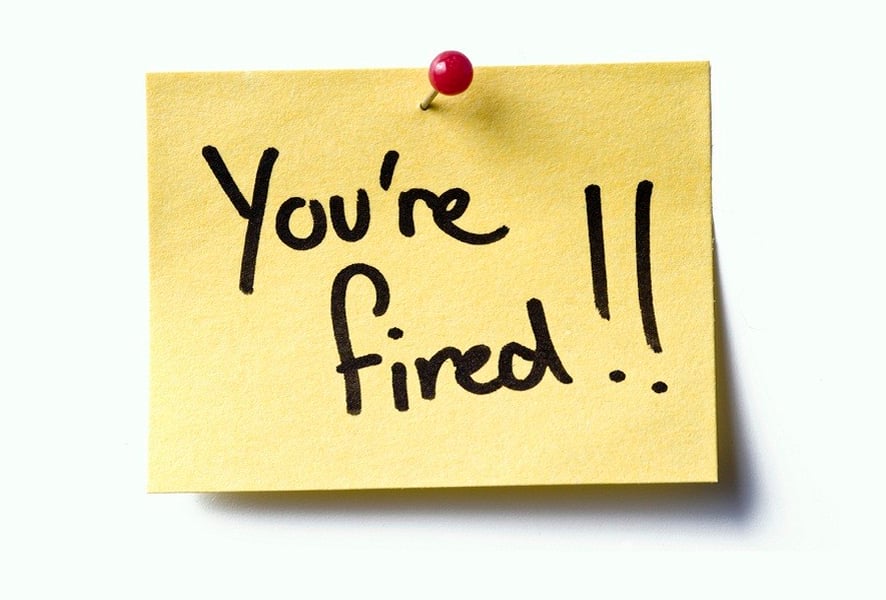I was intrigued when Elliot Weissbluth, founder and CEO of fast growing $30 billion RIA HighTower, shared this idea
on my recent podcast.
“I really go through the process of terminating myself and then I rehire myself. I write in my journal what are the things I did that led to my termination and then what are the things that I, as the new CEO, will do differently,” he said.
The process works because the “psychological freedom” you gain by distancing yourself from the guy who made last year's decisions is “quite liberating.”
A SOLOMON-LIKE DECISION
The genesis of this “fire yourself” idea goes back to a 1985 conversation between Andrew Grove and Gordon Moore of Intel.
At the time, Intel was losing millions of dollars on its flagship memory chip business and it had to make a big decision. Should the firm gut it out in the fiercely competitive memory chip business or bet the company on the relatively new microprocessor business?
To make this Solomon-like decision, senior executive Grove turned to co-founder Moore and asked, “If we got kicked out and the board brought in a new CEO, what do you think he would do?”
Mr. Moore answered without hesitation, “He would get us out of memories.” To which Grove responded, “Why shouldn't you and I walk out the door, come back and do it ourselves?”
The rest is history. Intel went on to become one of the greatest success stories in business and Mr. Grove ranks as one of the all-time best CEOs.
PUSH THE RESET BUTTON
Mr. Weissbluth took this “fire yourself” idea to heart.
He said things change so quickly in a fast-moving company that, “You have to push the big reset button in your brain and say, 'look, the CEO the company needed last year is not the CEO the company needs next year and certainly not the CEO the company needs in two years.'”
When you peel the onion back a bit on this idea, you realize the genius of Mr. Grove's question and the wisdom of Mr. Weissbluth to adapt it to his business.
Inertia is a powerful force. Most of us prefer the status quo. Most of us don't change until we're forced to, or worse, until it's too late.
This is why when companies get in trouble, they often fire the top dog and turn to the outside for new blood. The thought is the old boss is too emotionally invested in the “old way” of doing things to adapt to the company's “new” reality.
Firing yourself each year enables you to re-examine, re-tool, and re-start in a deliberate way.
Mr. Weissbluth engages his management team in this exercise, too.
“I also do this same exercise with the management team. In the middle of the summer, we go up to our CFO's house in Michigan and we fire ourselves. Then we hire ourselves back and discuss the things we're going to do differently. The process of being clear of what you did the last year and then being able to have a blank slate is really powerful.”
In fact, you could have every employee in your company complete this exercise each year.
As Mr. Grove wrote in his book, "Only the Paranoid Survive", “If existing management want to keep their jobs when the basics of the business are undergoing profound change, they must adopt an outsider's intellectual objectivity.”
With the objectivity of an outsider, you lose your emotional attachment to the “sequence of events that led to the present mess” and free yourself to make new decisions from a fresh perspective, wrote Mr. Grove.
ACTION STEP
Implementing this idea is simple.
1. Go to a quiet location and write down, “You're fired,” on a piece of paper.
2. Then list several reasons why your services are no longer needed and what you learned from this.
3. Conclude by thoughtfully laying out a new plan to grow your business unencumbered by existing strategies.
I just completed this exercise myself and the bad news is, it's easy to see why I was “fired” from my
executive coaching and business strategy company, Belay Advisor.
The good news is, the path required to get my business where I want it to be are clear and this exercise was a simple but powerful way to force me to confront reality.
MORE GEMS
Mr. Weissbluth shared several more gems in the podcast interview, including:
1. How HighTower raised $65 million in institutional capital before it even had their first client.
2. The one business metric all RIAs should track.
3. The three keys to building a thriving RIA in the years ahead.
4. Who will be disrupted by robo technology.
Click
here to listen to the podcast and download a full transcript to read at your leisure.
There's reasons why people like Mr. Weissbluth can build a $30 billion RIA firm in less than 10 years:
1. They see big secular shifts that lead to opportunities and they go for it.
2. They assemble a team of experienced pros.
3. They develop detailed plans yet have the flexibility to “fire” themself and adjust as reality warrants.
The ideas shared in this podcast are rocket fuel for your moonshot.
Steve Sanduski is an executive coach, business strategies and founder of Belay Advisor. Follow him on Twitter @SteveSanduski or connect on LinkedIn.







